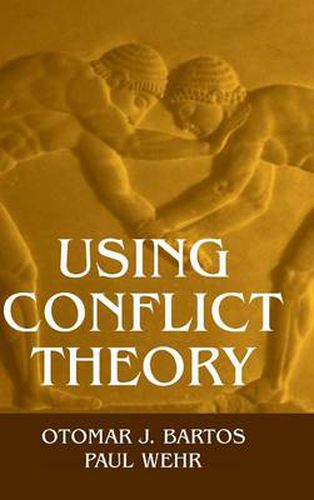Readings Newsletter
Become a Readings Member to make your shopping experience even easier.
Sign in or sign up for free!
You’re not far away from qualifying for FREE standard shipping within Australia
You’ve qualified for FREE standard shipping within Australia
The cart is loading…






Human conflict - from family feuds, to labor strikes, to national warfare - is an ever-present and universal social problem and the methods to manage it, a challenge for everyone, from average citizens to policymakers and social theorists. Using Conflict Theory will educate students about how, under what conditions, and why conflict erupts, and how it can be managed. It is a unique classroom book blending theory and practical application and the first to bridge for students the science of social theory and the art of practice. The authors extract from classical sociological theory (Marx, Dahrendorf, Weber, Durkheim, and Parsons), and interpret for the student how these theoretical perspectives have contributed to understanding social conflict (its sources, the causes of escalation and de-escalation of violence, the negotiations process). The perspectives of contemporary theorists (such as Randall Collins, James Coleman, Joseph Himes, Hubert Blalock) are also brought to bear on these questions.
$9.00 standard shipping within Australia
FREE standard shipping within Australia for orders over $100.00
Express & International shipping calculated at checkout
Human conflict - from family feuds, to labor strikes, to national warfare - is an ever-present and universal social problem and the methods to manage it, a challenge for everyone, from average citizens to policymakers and social theorists. Using Conflict Theory will educate students about how, under what conditions, and why conflict erupts, and how it can be managed. It is a unique classroom book blending theory and practical application and the first to bridge for students the science of social theory and the art of practice. The authors extract from classical sociological theory (Marx, Dahrendorf, Weber, Durkheim, and Parsons), and interpret for the student how these theoretical perspectives have contributed to understanding social conflict (its sources, the causes of escalation and de-escalation of violence, the negotiations process). The perspectives of contemporary theorists (such as Randall Collins, James Coleman, Joseph Himes, Hubert Blalock) are also brought to bear on these questions.